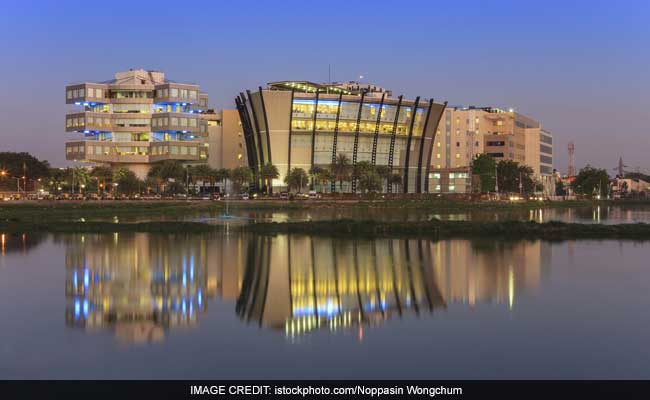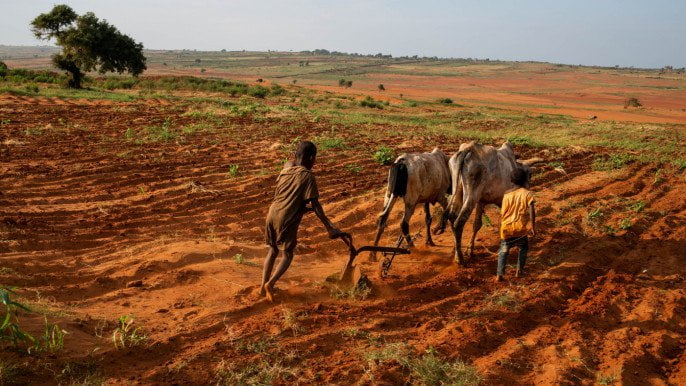

To remain competitive in today’s economic landscape, cities have to keep innovating and adjusting to constantly changing circumstances.
Bangalore, India’s tech hub (now officially called “Bengaluru”), appears to be willing to refashion itself to thrive. It’s now the world’s fastest-changing city, triumphing over established global IT capitals like Silicon Valley and London, according to the JLL City Momentum Index.
The index tracks 42 indicators, including socio-economic factors like gross domestic product, air quality, and foreign direct investment; real estate momentum measured by construction, rents, and investment; and technological prowess in terms of access to education and environment quality. It considers 134 established and emerging business hubs in order to determine which urban economies are most likely to “embrace rapid change.”
In this year’s edition of the annual assessment—the fourth so far—India as a whole came to the fore. “India has taken over from China as home to some of the world’s most dynamic cities,” JLL said in a press release. India houses six of the most dynamic cities, compared to China’s five. Overall, Asia-Pacific cities comprise half of the top 30 fastest-changing metropolises.
| World’s Most Dynamic Cities, JLL City Momentum Index |
|---|
| 1. Bangalore (India) |
| 2. Ho Chi Minh City (Vietnam) |
| 3. Silicon Valley (USA) |
| 4. Shanghai (China) |
| 5. Hyderabad (India) |
| 6. London (UK) |
| 7. Hanoi (Vietnam) |
| 8. Austin (USA) |
| 9. Boston (USA) |
| 10. Nairobi (Kenya) |
| 11. Dubai (UAE) |
| 12. Melbourne (Australia) |
| 13. Pune (India) |
| 14. New York (USA) |
| 15. Beijing (China) |
| 16. Sydney (Australia) |
| 17. Chennai (India) |
| 18. Paris (France) |
| 19. Manila(Philippines) |
| 20. Seattle (USA) |
| 21. San Francisco (USA) |
| 22. Shenzhen (China) |
| 23. Delhi (India) |
| 24. Raleigh Durham (USA) |
| 25. Mumbai (India) |
| 26. Hangzhou (China) |
| 27. Los Angeles (USA) |
| 28. Dublin (Ireland) |
| 29. Nanjing (China) |
| 30. Stockholm (Sweden) |
“With 40% of India’s IT industry located in [Bengaluru], the presence of international IT giants, together with the largest number of high-tech start-ups of any Indian city, are contributing to entrepreneurial growth,”JLL’s director of global research, Jeremy Kelly, told the Hindu after the city came in fourth on last year’s list.
Throughout 2016, international giants such as Amazon, Apple, and Salesforce set up shop in Bengaluru, which was already home to established domestic firms, like Infosys, homegrown unicorns like ride-hailing app Ola and other startups such as on-demand grocer Big Basket and secondhand e-retailer Quikr. Bengaluru’s commercial real estate market has been the busiest in the country, reaching just 3% office space vacancy in mid-2016.
Some metropolitan cities may be technologically adept but are hampered by infrastructure, environment, and government impediments. For instance, San Francisco fell out of the top 20 for the first time, and Hong Kong didn’t even make the top 30 list, both due to space constraints and unaffordable costs of living, the World Economic Forum (WEF) said in its assessment of JLL’s ranking. Smog-plagued Delhi and Beijing, which are ranked among the world’s most polluted cities by the World Health Organization, were “hindered by poor environmental scores,” the WEF noted.
In the coming year, protectionism, nationalism, environmental degradation, and public safety could impact the Indian cities on the list—even Bengaluru. With local companies calling to keep out the likes of Amazon and Uber and the recent the New Year’s Eve mass molestation debacle, Bengaluru will need to work hard to retain the top spot—especially since it may no longer be a startup favorite. In the first half of 2016, Delhi attracted almost twice as much startup funding as Bengaluru, as well as six of the 10 largest overall startup investments made in India in that same period.
[Source:-Quartz]





